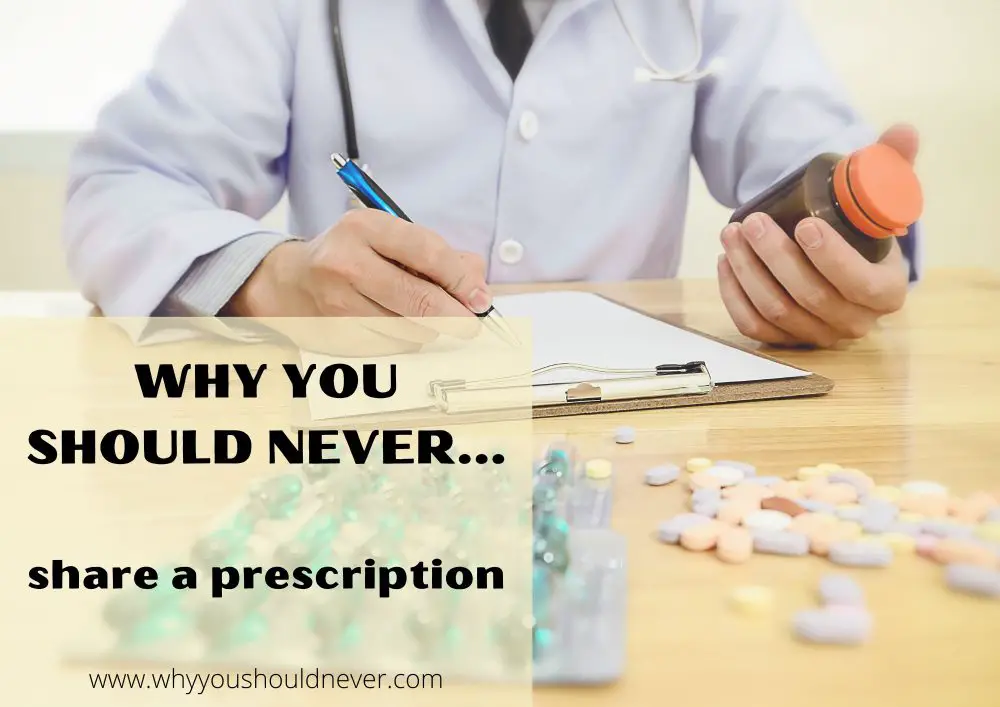![]()
Why You Should Never Share A Prescription
Have you ever had a friend who’s struggled with a cold and offered to share your antibiotics with them? Or maybe you’ve hurt your back and a family member has offered you a few of their pain pills? These situations are very common; we all want to be good Samaritans.
While it may seem like no big deal to share your medication, it can actually be very dangerous. In this article, we’ll explore all the reasons why sharing prescription medication is a bad idea.
4 reasons why you shouldn’t share your prescription medication
1. A prescription is written for a specific person
Your prescription is specifically tailored to your individual health needs. The dosage is based on things like weight, age, gender, and other health factors. Giving someone else your medication – even if they’re the same age, weight, and gender – can be dangerous.
Even if a medication is safe for most people, there’s always the chance that it could have serious side effects in someone with a pre-existing condition.
For example, some blood pressure medications can cause birth defects, so they would not be safe for a woman who is pregnant or trying to become pregnant.
Sharing a prescription medication without knowing your friend’s medical history could put them at risk for serious complications.
2. You or someone else could be allergic to the medication
If you’ve never taken the medication before, you have no way of knowing if you’re allergic to it or not. Some people are allergic to certain active ingredients in medications, while others may be allergic to fillers or binders.
Reactions can range from mild (rash, hives) to severe (trouble breathing, swelling of the throat). You might not know you’re allergic to the medication until you start taking it and have a reaction.
Even if you’ve taken the medication before with no problems, that doesn’t mean someone else won’t be allergic to it. If you share your prescription medication with someone and they have a severe allergic reaction, they could end up in the hospital – or worse.
3. You might need it yourself later
If you share your medication with someone, there’s a chance you might need it later. For example, if you share an antibiotic with a friend who has a sinus infection, and then you come down with a sinus infection yourself, you’ll have run out of medication.
The same goes for other medications, like migraine medication or birth control pills. If you share your pills with a friend and then have a sudden need for them, you might not have any left.
Getting more will also be difficult since your prescription is supposed to last for a specific period. You may find that if you run out before time, you won’t be able to get another prescription immediately.
4. It’s against the law
Of course, if the other dangers don’t deter you from sharing your medication, the law should.
Sharing prescription medications is illegal and could land you in hot water with the law. In the US, it’s a federal offense to share prescription drugs with anyone.
If you’re caught, you could face charges of drug possession or distribution. In some states, penalties for sharing prescription medications are just as severe as those for selling illegal drugs.
Conclusion
Don’t let the convenience of sharing prescription medication tempt you into breaking the law or potentially harming yourself or someone you care about—it’s just not worth it.
If you or someone you know are struggling to afford medication, there are plenty of legitimate assistance programs out there that can help you get the care you need.
